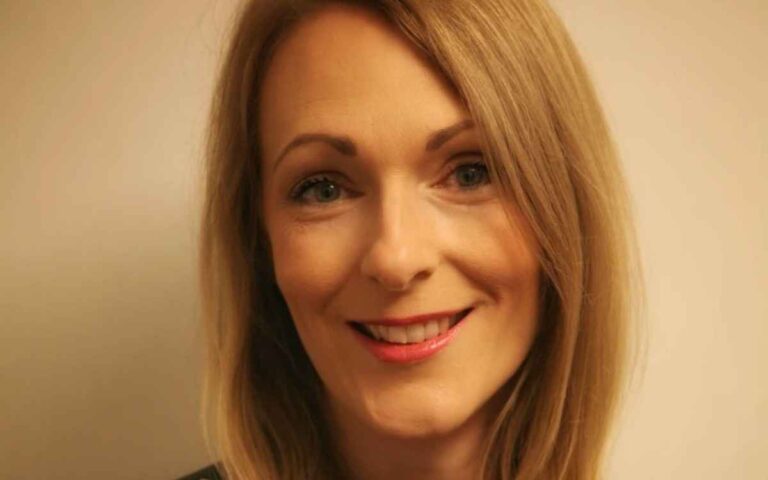Rebecca has over five years of experience as a senior data analyst.
Her current role involves working alongside the sales and senior leadership team to identify patterns and actionable insights to optimise customer experience and enhance business performance. Prior to Fruugo, she studied Criminology and Law and worked with vulnerable young people, before moving to a career in digital marketing at Lakeland and a marketing agency.
How did you land your current role? Was it planned?
My journey into digital marketing was unintentional. I decided to go ahead with a career change in my early thirties and I started working as an admin at a search engine optimisation (SEO) and pay-per-click (PPC) agency while weighing up my options. After taking on some of the account manager tasks, I found that I enjoyed it, progressing to an account manager then senior account manager at the company. I stayed on the digital marketing path, moving to Lakeland, before joining Fruugo.
What are the key roles in your field of work, and why did you choose your current expertise?
With regards to digital marketing, some of the key roles include SEO specialist, content marketer and PPC specialist. Each of these roles focuses on different aspects of driving online engagement and sales, such as optimising websites for search engines, creating engaging content and running pay-per-click advertising campaigns.
I chose digital marketing as a profession after trying and testing out other career paths which helped me to establish what I wanted to do long term. After spending some time at Fruugo, which is where I started managing more people, I became a senior digital marketing analyst.
If you had asked me twenty years ago whether I thought this would be my profession, I would have said no. However, my career journey shows that it’s never too late to go in a different direction and find success in a new field.
Did you (or do you) have a role model in tech or business in general?
Although I do not necessarily have a specific role model in the world of technology or business, I have always looked up to people who are fair, honest and reached their position through hard work and great leadership, rather than by climbing up the ranks at the expense of others or through untoward business practices. There are numerous horror stories as to how some CEOs or directors treat their staff which unfortunately doesn’t sit well with me, so I can’t personally see people as role models unless I know their integrity.
What are you most proud of in your career, so far?
Fruugo is very different to the other places where I have worked mainly due to the number of countries it covers, as well as advertising accounts and campaigns that we manage. We are also always open to new ideas. For example, when Google announced the change from ‘Smart Shopping’ to ‘Performance Max’ campaigns, it piqued our interest.
In a nutshell, both campaign types are performance orientated and use machine learning to analyse data so that products are more likely to be shown to the right person at the right time.
However, there are some key differences: one of the most interesting is that Performance Max campaigns allow you to drive more conversions across all Google’s channels – Search, YouTube, Gmail, Maps and so on – from one campaign type. Each Performance Max campaign has an asset group where creatives such as text and images can be managed, and Google can then use these to create and place an ad. The campaign also has a listing group, and this is in effect what the old smart shopping campaign consisted of. A listing group of items you want to include within that campaign and targeting shopping ads only.
After some testing, we moved all our Smart Shopping campaigns over to Performance Max resulting in us being one of the first adopters of this campaign type, as well as being one of the highest users of them in Europe. This ensured that we were ahead of the curve as most advertisers did not implement the change until it was mandatory sometime later.
What does an average workday look like for you?
Whilst I have some regular daily tasks – ranging from checking campaign performance and budgets, to running reports on trending products or changes to campaign performance – there is no such thing as an average day for me. Our team is very much at the centre of trading, so we have the best visibility on associated data, and we spend a lot of time liaising with other teams such as account managers and sales reps, making sure that all data is available to them. This means we are able as a collective to take meaningful actions to drive business forwards.
Are there any specific skills or traits that you notice companies look for when you’re searching for roles in your field?
Most employers seek employees who have had some experience working with PPC platforms such as Google or Bing. Companies’ ideal candidates are those who have great attention to detail and possess good analytical skills which are vital when it comes to presenting data to others in an easy-to-understand format.
Naturally, this requires having good communication skills, both written and oral, as you are dealing with a wide range of people, from external agencies to company directors, as well as writing copy for search ads or advertising campaigns. Whilst some companies are keen for employees to have a degree in marketing, I am proof that this isn’t necessarily a requirement.
Having intellectual curiosity is a great trait to have for this type of role. Ultimately, companies are looking for employees who investigate things further and actively seek out answers. For example, rather than simply stating that sales are up in a particular category, being intellectually curious means that the individual wants to dive deeper into why that might be, even if it is something external to the company or out of scope.
Has anyone ever tried to stop you from learning and developing in your professional life, or have you found the tech sector supportive?
From my experience, the tech sector has been supportive, and I have always felt valued within my roles. In return, I have been supportive of other employees when it comes to ensuring that their work is recognised and that they receive the appropriate acknowledgement of this. I am far more likely to advocate for others than myself!
Have you ever faced insecurities and anxieties during your career, and how did you overcome them?
Whilst this is something I rarely talk about, it is something that affects me almost daily. Throughout my working life, I have been impacted by imposter syndrome and as a result I sometimes question what I do and end up striving for perfection and subsequently feel like I have failed if I don’t reach that level of work. Whilst this means I am my own worst critic, I do believe a small and manageable level of anxiety isn’t necessarily a bad thing. If you care about something and want to succeed, then these feelings are natural to a degree.
I have been advised to consider how my internal dialogue speaks to me; it should speak in the same manner one would speak to a friend. This means if a person talks to oneself in a worst-case scenario, using negative or derogatory language, that person becomes more aware of doing this and can then challenge that thought or concept.
This is a good starting point. After all, you wouldn’t tell a friend all the awful ‘what if’ scenarios or how badly they’d done, you’d focus on the positives and counter their ‘what ifs’ with manageable solutions.
Entering the world of work can be daunting. Do you have any words of advice for anyone feeling overwhelmed?
Firstly, it is important to acknowledge that feeling overwhelmed is normal and has affected almost everyone at some point, in either their work or social life. We live in a generation where we see everyone share the positives of their life on social media and we constantly compare ourselves. However, the grass isn’t always greener elsewhere once the polished lens of social media is removed, and it’s important to remember this. There is no stigma in communicating that you feel overwhelmed, and people should be encouraged to discuss their emotions.
One piece of advice for anyone feeling overwhelmed is to confide in a colleague or friend that you trust and who understands your day-to-day life. Even if they can’t provide a solution, talking through your feelings and why you feel that way can help. Also, setting up regular meetings with a manager or supervisor at a workplace is a great way to address any concerns as they may be able to provide alternative ideas or offer guidance in working through these feelings.
That feeling of being overwhelmed may present itself for a myriad of reasons, but one that often crops up is workload. Whilst working longer hours and skipping holidays to get on top of the workload may help in the short term, it doesn’t address the actual issue and can cause burnout in the long run, so it’s important to be mindful of this and look after yourself.
What advice would you give other women wanting to reach their career goals in technology?
My advice would be the same to everyone regardless of gender or other differences; we should all want to be judged based on our merits. The key is to work hard, be committed, offer new ideas and solutions even if they aren’t progressed and deliver on what you yourself have promised. Having the loudest voice or being the most charismatic in the room isn’t necessary but delivering on these things won’t go unnoticed.
We also need to acknowledge what our end goals are. For example, aiming to be a company CEO will ultimately mean working longer hours and making sacrifices along the way. No one should expect to be given things on a plate, but we should acknowledge that we have to work towards our goals even if that means starting at the bottom of the career ladder.
One thing we always say to new starters is that there is no such thing as a stupid question. Asking questions is how you learn and gain insight, whether you’re at an interview or joining a company as a new starter.








